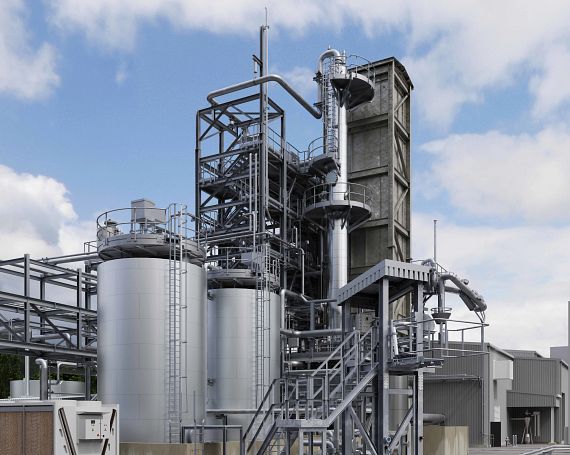igus® invests in the chemical recycling of Mura Technology Limited
HydroPRS technology regains resources from plastic waste in 30 minutes
Every year, eight million tonnes of plastic end up in the world's oceans. These lost resources are worth around $80 billion. The problem is that so far, most plastic has been incinerated (only 14% is recycled). Around the world, mixed waste is always left over. In the case of non-technical plastics, it is 100 to 1,000 times the figure for technical ones. Mura Technology Limited chemical recycling offers new solutions.
The Hydrothermal Plastic Recycling Solution (HydroPRS) was developed in 2007 and tested in a pilot plant in Australia for more than ten years. With HydroPRS, classic non-recyclable plastic waste can be converted back to oil within 30 minutes. The method is far more resource-efficient than extracting fossil oil, saving up to five barrels per ton of plastic waste processed. Only water, high temperatures, and pressure are used to separate and re-assemble the cells. Just one plant can process 20,000 tons of plastic per year, reducing CO2 output by 28,180 tons. That is the annual consumption of 5,983 cars and the annual energy needs of 4,914 households. And the plant's capacity is to be tripled in the long term.
The Hydrothermal Plastic Recycling Solution (HydroPRS) was developed in 2007 and tested in a pilot plant in Australia for more than ten years. With HydroPRS, classic non-recyclable plastic waste can be converted back to oil within 30 minutes. The method is far more resource-efficient than extracting fossil oil, saving up to five barrels per ton of plastic waste processed. Only water, high temperatures, and pressure are used to separate and re-assemble the cells. Just one plant can process 20,000 tons of plastic per year, reducing CO2 output by 28,180 tons. That is the annual consumption of 5,983 cars and the annual energy needs of 4,914 households. And the plant's capacity is to be tripled in the long term.

Classic plastic recycling vs. recycling with HydroPRS


igus supports the circular economy of plastics
In the future, chemical recycling will shine where conventional recycling reaches its limits. To support Mura in the start-up phase and help the technology to a global breakthrough, igus invested £4 million (€4.7 million) in January 2020 and increased its investment to a total of €5 million in March 2021. This support and the establishment and expansion of other partnerships enabled Mura to start constructing the first commercial HydroPRS plant, which is being set up at the Wilton International industrial site in Teesside in the north-east of England.
In April 2021, Dow Chemical, the world's second-largest chemical company, became another partner. The collaboration will further advance the scaling of Mura's advanced recycling process: Dow will use the newly extracted raw materials to develop new plastics for food packaging and other packaging products that will eventually be recycled back into global supply chains.
The process is planned as follows: waste companies supply the plastic waste to achieve their recycling goals. Oil is then obtained at a price similar to that of fossil oil. In the first phase, a total of four catalytic hydrothermal reactors will be built in Teesside to process more than 80,000 tons of plastic waste every year. More plants are planned in Germany, the US, Asia, and elsewhere.
The process is planned as follows: waste companies supply the plastic waste to achieve their recycling goals. Oil is then obtained at a price similar to that of fossil oil. In the first phase, a total of four catalytic hydrothermal reactors will be built in Teesside to process more than 80,000 tons of plastic waste every year. More plants are planned in Germany, the US, Asia, and elsewhere.
